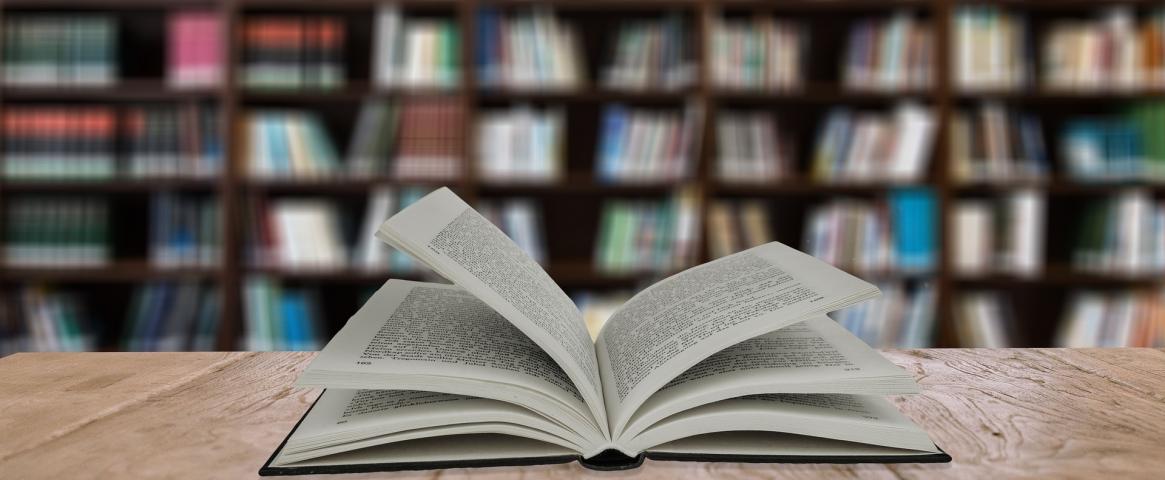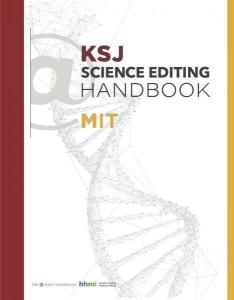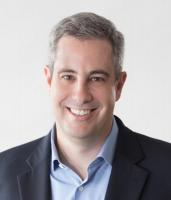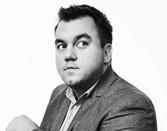
Joshua Hatch, Nicholas Jackson: KSJ Science Editing Handbook
Knight Science Journalism Fellowship, MIT, Nov. 30, 2020
Joshua Hatch and Nicholas Jackson, co-editors
Download free at https://ksjhandbook.org/
ISBN 13: 9780578867496
Hatch reports:
Rare is the general interest news organization with a regular science section. Rarer still is one with dedicated science editors. Yet, much of the public gets its science news from local news outlets, according to Pew research.
That puts an ever-increasing burden on general interest editors to know DNA from RNA, Milankovitch cycles from circadian rhythms, and how to combat disinformation on everything from vaccines to genetically modified organisms.
For that reason, I was excited when the Knight Science Journalism Fellowship at MIT asked me, a former fellow, to work with top science journalists to assemble an online resource geared to general editors. Nick Jackson, formerly of Pacific Standard, joined me in co-editing the KSJ Science Editing Handbook.The handbook provides resources, tips, case studies, and background information on a wealth of topics. Apoorva Mandavilli of The New York Times explains the fundamentals of science research and funding. New York University’s Melinda Wenner Moyer writes about finding the best sources (and others to be wary of), while Elisabetta Tola of Facta delves into best practices for making sense of science stats.
The handbook includes chapters by Brooke Borel of Undark on fact checking, by Scientific American’s Jen Christiansen on graphics, and by Knowable Magazine's Katie Fleeman on the use of social media for story discovery and audience engagement.
Other authors include Erin Brodwin of STAT, whose chapter on health is timely for COVID-19 coverage; Rachel Feltman of Popular Science on editing for story; Laura Helmuth of Scientific American on covering science controversies and “controversies,” Fen Montaigne of Yale 360, who writes about covering climate change; and Tom Zeller Jr. of Undark on how to hold science accountable.
The handbook is freely available under a Creative Commons license, and made possible thanks to support from the Kavli Foundation and the Howard Hughes Medical Institute’s Department of Science Education. Readers are encouraged to download the book for quick reference and share it as a teaching and training guide. Work is underway to translate it into other languages. Updates will keep it current.
Contact info:
- Joshua Hatch, 202-821-6276, hatchjt@mac.com, @hatchjt
- Nicholas Jackson, 815-341-8122, Nicholas.b.jackson@gmail.com, @nbj914
- Book: https://ksjhandbook.org/
Download this book free at https://ksjhandbook.org/.
NASW members: will your book be published soon? Take advantage of this opportunity for shameless self-promotion. Submit your report for Advance Copy.
Tell your fellow NASW members how you came up with the idea for your book, developed a proposal, found an agent and publisher, funded and conducted research, and put the book together. Include what you wish you had known before you began working on your book, or had done differently.
See https://www.nasw.org/advance-copy-submission-guidelines.
Review Advance Copy archives at https://www.nasw.org/member-article/advance-copy.
Thinking of writing a book? If you are a NASW member, you may access a list of more than 150 books and online resources to help you craft your book proposal, find an agent and funding sources, negotiate your contract, learn about self-publishing, publicize and market your book, and more at https://www.nasw.org/article/write-book.
Send book info and questions about book publishing to Lynne Lamberg, NASW book editor, llamberg@nasw.org.
Follow @LynneLamberg on Twitter for news about science/medical books and writing.
Advance Copy
The path from idea to book may take myriad routes. The Advance Copy column, started in 2000 by NASW volunteer book editor Lynne Lamberg, features NASW authors telling the stories behind their books. Authors are asked to report how they got their idea, honed it into a proposal, found an agent and a publisher, funded and conducted their research, and organized their writing process. They also are asked to share what they wish they’d known when they started or would do differently next time, and what advice they can offer aspiring authors. Lamberg edits the authors’ answers to produce the Advance Copy reports.
NASW members: Will your book be published soon? Visit www.nasw.org/advance-copy-submission-guidelines for information on submitting your report.
Publication of NASW author reports in Advance Copy does not constitute NASW's endorsement of any publication or the ideas, values, or material contained within or espoused by authors or their books. We hope this column stimulates productive discussions on important topics now and in the future as both science and societies progress. We welcome your discussion in the comments section below.




